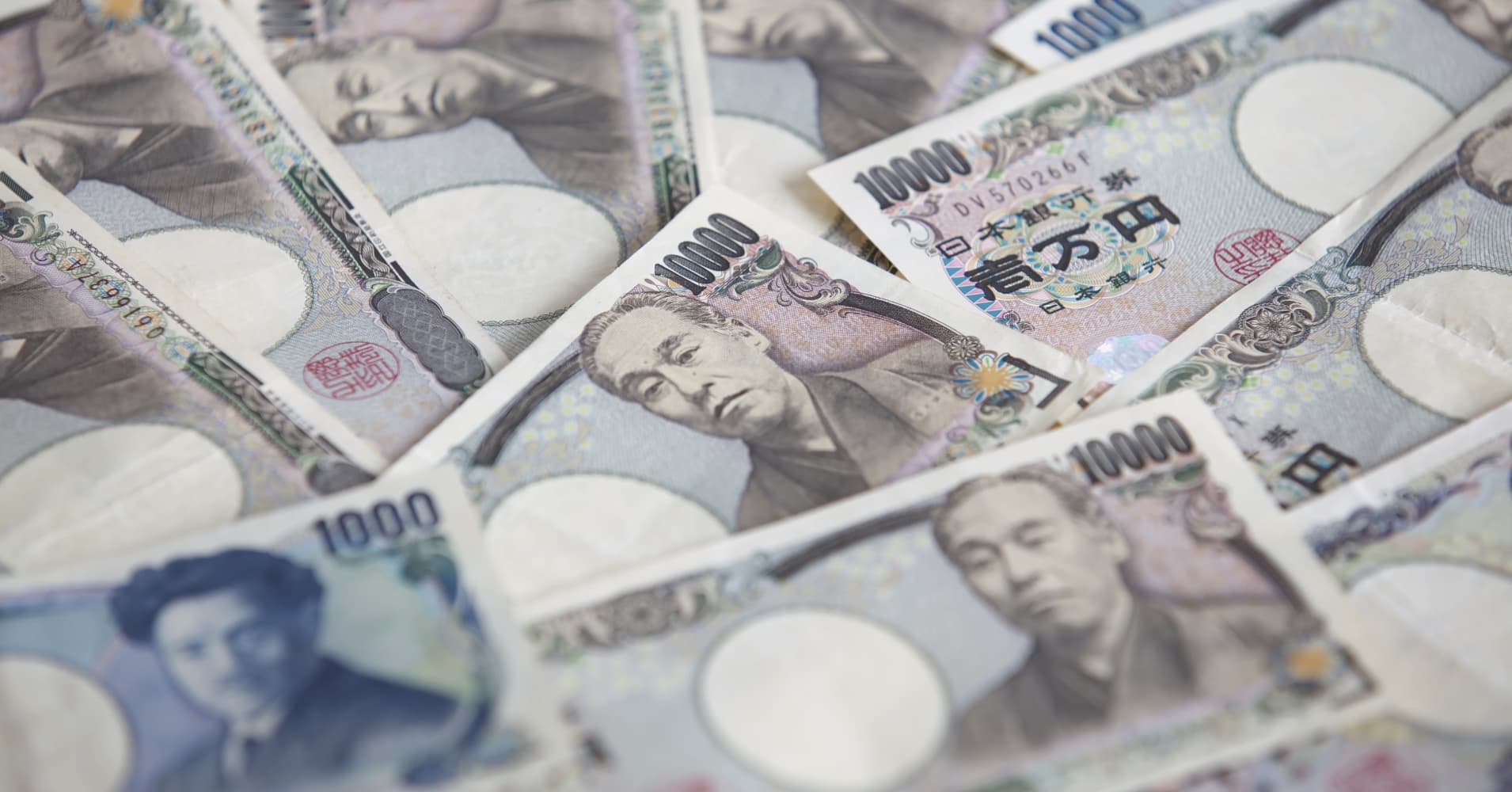 Donald Trump ’s accusation that Japan manipulates its currency doesn’t appear likely to play into any negotiation leverage as the president meets with Prime Minister Shinzo Abe this week.
Donald Trump ’s accusation that Japan manipulates its currency doesn’t appear likely to play into any negotiation leverage as the president meets with Prime Minister Shinzo Abe this week.
Trump’s accusation was unexpected.
„Every other country lives on devaluation,“ Trump said late last month, according to multiple media reports. „You look at what China’s doing, you look at what Japan has done over the years. … They play the money market, they play the devaluation market and we sit there like a bunch of dummies. “
It is unclear what Trump meant by „devaluation market. “
The yen has dropped sharply since Trump’s surprise election, with the dollar fetching more than 118 yen earlier this year, compared with levels around 102 yen before the vote. But analysts generally attribute the move to a sudden surge in the dollar amid expectations inflation would rise and spur the U. S. Federal Reserve to hike interest rates further.
Japanese policymakers quickly pushed back against the accusation, noting the Bank of Japan’s (BOJ) policy, which includes a massive quantitative easing program, was aimed at spurring inflation and economic growth, not at weakening the yen.
Many analysts found the accusation against Japan unwarranted.
„Where’s he been, this guy,“ asked Edwin Merner, president at Atlantis Investment Research, based in Japan. Merner noted that the accusation appeared recycled from headlines more than 20 years ago. „This is crazy talk. “
But the Trump comments have spurred the expectation that discussions over the yen would be on the table when the president and Abe meet Feb. 10-11, both at the White House and at the U. S. president’s country club in Florida, Mar-a-Lago, a mix of a private club owned by the Trump Organization and a separate private residence. The White House did not immediately return an email requesting information on the financial arrangements for the meeting.
The visit comes as relations between the U. S. and its long-running ally Japan may have already taken a chill after Trump pulled out of the Trans-Pacific Partnership (TPP) trade deal.
But whether Trump’s comments were in earnest, were just a talking point or were meant as a negotiating tool, attempts to force Japan to change its monetary policy don’t appear likely to bear much fruit, analyst said.
„The Abe administration is unlikely in our view to be able to accept any deal that constrains the BOJ’s monetary policy or foreign-exchange movement driven by fundamentals,“ analysts at Bank of America-Merrill Lynch said in a note on Monday.
They expected any such deal would destabilize Abe’s administration as it would be seen negatively by his supporters and as the Japanese economy wasn’t strong enough to take an exchange-rate shock.
„Agreeing to a deal that constrains the BOJ policy or foreign-exchange rate could be seen as a major concession on Japan’s sovereignty for the benefit of the U. S.,“ the note said. „Allowing the yen to strengthen and causing the BOJ to tighten policy undermines Japan’s reflation efforts. “
More to the point: „If the Trump administration still insists on a tough currency deal, which is not our main scenario, we believe Abe is more likely to confront than concede,“ the note said.
That doesn’t mean that Abe will put nothing on the table, however.
Japan was preparing a package that it said could generate hundreds of thousands of jobs in the U. S., according to government sources familiar with the plans, Reuters reported last week.
The plan was expected to include investments in infrastructure projects, including high-speed railways, the report said. It wasn’t clear how long these plans have been in the works as Japan Inc. has been seeking overseas infrastructure investments for many years.
Other analysts don’t expect Abe to bring too much of a package to the meeting.
„We think it could also be difficult for the Abe administration, which has thus far tried to promote more active domestic investment as part of its growth strategies, to shift gears and push Japanese companies to make further inroads into U. S. business,“ Nomura said in a note last week.
The bank said it expected the Japanese government was likely most concerned with avoiding being saddled with protectionist demands at the summit.
„A particularly troubling scenario would be one in which Japan faces strong pressure to reduce its trade surplus with the U. S., while the BOJ’s monetary policy is simultaneously sharply criticized as being designed to devalue the yen,“ it said.
But Nomura added that it saw little that Japan could realistically do to reduce its trade surplus.
It noted that while the Trump administration appeared to be particularly targeting autos. While autos are a key Japanese export to the U. S., few U. S.-made cars are sold in Japan.
While that may make for headlines that appeal to protectionist sentiment in the U. S., Nomura noted that Japan has already reduced tariffs on U. S. auto imports to zero.
To be sure, at least one analyst believes Japan’s monetary policy should be considered currency manipulation.
„In our view, the accusation is essentially valid,“ Takuji Okubo, chief economist at Japan Macro Advisors, said in a note last week.
„Japanese policy makers have been guiding, if not manipulating, the yen lower in the last four years. “
Okubo noted that taking measures to tamp down the yen was one of Abe’s campaign promises in 2012.
„While it is true that Japan has not directly intervened in the foreign exchange rate market, Japanese government officials clearly prefer weaker yen, say so explicitly from time to time and they have taken measures they know would influence the yen to weaken,“ he said.






